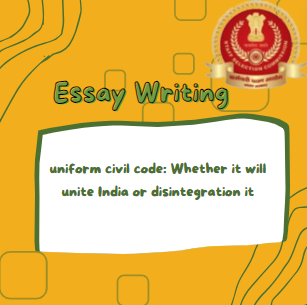The Uniform Civil Code (UCC) is a highly debated topic in India. The UCC aims to replace the personal laws based on religion with a common set of laws applicable to all citizens. While some believe that the UCC will unite India, others argue that it may lead to its disintegration.
The supporters of the UCC argue that it will promote national unity and equality among citizens. They believe that a uniform set of laws will eliminate discrimination based on religion and promote social justice. It will also ensure that women receive equal rights and opportunities, irrespective of their religion. A uniform code will help in the integration of society and promote national harmony. It will remove the differences and provide a level playing field to all citizens.
On the other hand, the opponents of the UCC argue that it will lead to the disintegration of society. They believe that India is a diverse country with people from different religions, castes, and regions. The personal laws based on religion reflect the diversity and the unique culture of each community. A uniform code will suppress the diversity and impose a single culture on all citizens. This will lead to conflicts and divide the society, rather than unite it. It may also create political tensions and lead to social unrest, as different political parties and religious groups may not agree on a uniform set of laws.
In conclusion, the Uniform Civil Code is a highly debated topic in India, and the debate on whether it will unite India or disintegrate it is ongoing. While a uniform code can promote equality and social justice, it must also respect the diversity and unique culture of each community. The UCC should be implemented in a manner that accommodates and respects the cultural diversity of India. It must be implemented in a way that promotes national integration and harmony, rather than causing conflicts and division.
